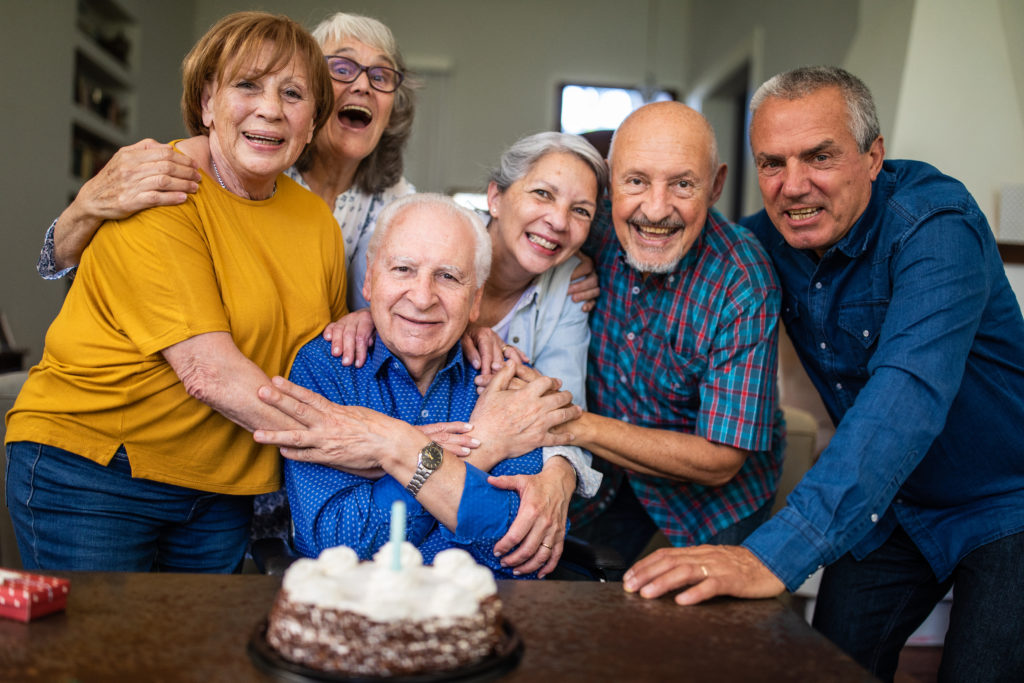
National Family Caregivers Month will run from November 1st through the 30th this year in Everett and elsewhere, and it’s a great time to recognize and honor the major contributions made by family caregivers all around the country. There have never been more people aged 65 and above in this country, and that means a great many more caregivers are needed than ever before. Most seniors prefer living at home, in the house that they spent much of their adulthood in, and which has become very comfortable for them. Senior home care professionals are well aware of this preference to live at home, and that’s why so many professionals are needed to provide ongoing care for the aged. In this article, we’ll discuss how useful family caregiving can be as a time for creating and preserving priceless memories involving our seniors.
Flip side of the coin
Probably a fairly typical representation of a family caregiver is someone who is constantly distressed, and having difficulty managing an unruly or uncooperative senior family member, often someone troubled with dementia. However, several studies have been conducted to find out just how stressful family caregiving is to those closest to the process. Several studies have concluded that the majority of people involved with family caregiving live longer lives than those not connected in any way with caregiving. None of these studies have delved into the question of why this might be true, but presumably, it’s because the caregiver feels more involved and connected with family members, as opposed to having little or no involvement. This isn’t to say that it’s a gratifying activity that everyone should take up to prolong their lives – it just points out that the stereotype of a harried and frustrated caretaker is not always accurate.
The positive aspect of caregiving
To be sure, certain situations might resemble a nightmare in the area of caregiving. Some seniors are troubled with dementia and that skews their behavior in some unexpected and often undesirable ways. They can be cross and irritable, argumentative, and even violent when they perceive something that bothers them. However, it must be remembered that these are not universal experiences, and in fact, they’re not even a majority experience. Many caregivers feel rewarded and empowered about giving back something to parents who have nurtured and guided them through life. These caregivers feel happy to be able to repay parents who were there for them throughout childhood, their teen years, and often into early adulthood. For these caregivers, it’s the perfect way to even the scales after having enjoyed great caretaking from parents in their youth.
How needy is your senior loved one?
The kind of caregiving experience you have will depend in large part on the overall health of your senior loved one. A senior afflicted with dementia will be facing a long and inevitable decline, and as their cognitive faculties become impaired, they are less likely to appreciate your care – and they may even exhibit hostility toward you. However, studies have shown that this is only the case in about 10% of all caregiving situations, so the vast majority of caregivers won’t be facing that kind of animosity or resentment. Instead, most elderly patients can express their appreciation for the care they’re being given, and when the senior is also a family member, it can serve to make them closer. In many cases, caregiving can result in a very positive and rewarding experience for both patient and caregiver.
Making memories together
If you’re not caring for a contentious elderly person with dementia, it’s entirely possible that this caregiving period of your life can be used to repair or enhance a relationship with an elderly loved one. If your senior is a dementia patient, it’s a little more likely that many of your recollections about caregiving will be tinged with sadness, as you recognize the deterioration happening with your relative. Even so, try to hang on to the most positive aspects of that time, because it is likely the final phase of their long life. For caregivers managing more or less healthy seniors, this can be a priceless time of building last memories together before your relative passes on. Caregiving can include a lot more than just home care – you can arrange any kind of activity that is compatible with your senior’s health and attitude. You can have regular walks around the park together, you can arrange occasional special meals, and you can attend shows, movies, and concerts. Any of the things that make life more enjoyable can be undertaken together with your senior loved one, and you’ll have made some precious memories that can be recalled forever after.
